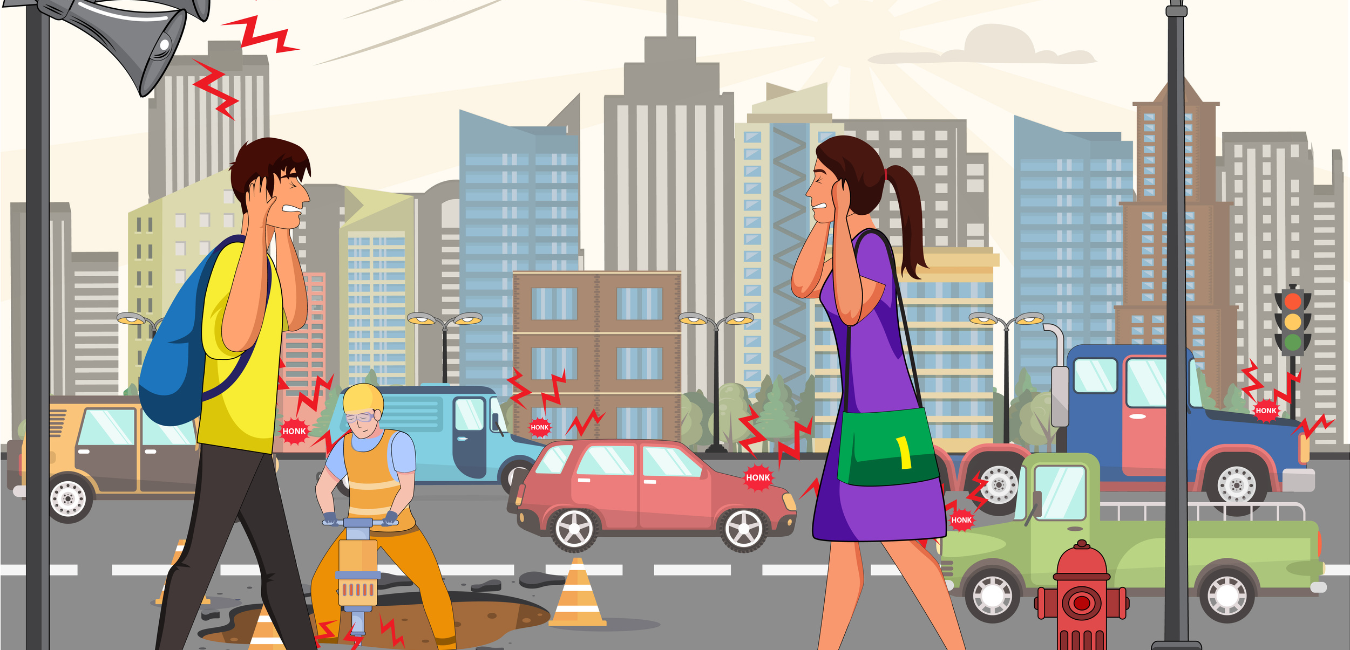Can Hearing Loss Be Reversed?
“I can’t hear as well as I used to. Can hearing loss be reversed?”
This question arises frequently with patients who struggle with their hearing. Hearing loss may not be noticeable initially, but its impact on daily living is significant as it progresses. No one wants to consider permanent hearing damage. When it comes to reversing hearing loss, early intervention is absolutely critical.
However, before anyone can assist you, an audiologist must discover the underlying cause and type of hearing loss experienced and then compile a treatment plan.
Reasons People May Lose Their Hearing
There are a range of reasons as to why people lose their hearing, and it isn’t limited to older individuals. Not every hearing issue goes away independently; even if it is a minor inconvenience, it is often worth checking out.
The Aging Process
The most common factor for hearing loss is age. Individuals can lose 10% of their hearing for every twenty years of age. Yet, for some, age-related hearing loss occurs more rapidly. While it may not be reversible, hearing is improved with hearing aids.
Certain Health Conditions
In older people, diseases like high blood pressure and diabetes can generate hearing loss. Viruses/bacteria causing ear infections, stroke, heart conditions, tumors, or brain injury can also reduce hearing.
Prescription and Over-the-Counter Medications
Some medications can damage the inner ear. Sometimes, the hearing loss is recoverable; other times, it may be permanent. Drugs treating heart disease, serious infections, cancer, aspirin (some dosages), and antibiotics can lead to hearing loss.
Loud Noise
This factor is the second most prevalent cause of hearing loss. It isn’t reserved for loud music, but can also result from lawnmowers, work-related noise, and snow blowers. Excessive noise levels can damage your inner ear, resulting in permanent hearing loss. Furthermore, continual loud noise can cause tinnitus.
Yet, you can prevent this by keeping the sound at reasonable levels, wearing ear protection, or simply moving away from the noise.
Fluid Build-up and Ear Wax
These issues generate hearing loss because they block sounds from the eardrum to your inner ear. If it is a wax blockage, mild treatments are prescribed to soften it. Additionally, ruptured eardrums lead to hearing loss. Infection, pressure, or placing objects in the ear can damage the eardrum.
You should see a professional immediately if you experience ear pain or if there is fluid draining from your ear.
Other reasons include diseases, injury, exposure to loud noise, ototoxic medications (prescriptions or over-the-counter drugs leading to tinnitus), and injury.
Types of Hearing Loss
Hearing issues can happen at any age. As mentioned above, several factors can cause hearing loss. With that said, however, there are four main types of hearing loss that people can experience, as outlined below:
-
Sensorineural hearing loss
This hearing loss is the most common type and transpires when there is damage to the sensory cells/nerves in your inner ear. This damage disrupts sound transmission from the ear to the brain, resulting from loud noise exposure, aging, inherited conditions, and injury.
Hearing loss is gradual, affecting the clarity and volume of perceived sound. Most people struggle with hearing sounds at higher frequencies. If you begin to suspect that you’re not hearing as well as you used to, schedule an appointment to have your hearing checked immediately.
Catching hearing loss early is the best way to reverse some of the damage and prevent your hearing from degrading further.
-
Conductive hearing loss
This condition occurs when sound waves aren’t carried entirely through from the outer/middle ear to your inner ear. Blockages are caused by earwax build-ups or foreign objects in the ear.
Other reasons are:
- Space in the middle ear is filled with fluid
- Infections
- Injured eardrums
- Bone abnormality
- Damage to middle ear
Conductive hearing loss is prevalent in children with recurrent ear infections or who could have foreign objects in the ear. Taking your child for regular hearing check-ups is the best way to ensure they’re not at risk for this type of hearing loss.
-
Sudden hearing loss
Rare cases can cause someone to lose their hearing abruptly. Causes can be sensorineural or conductive. It happens in one ear with apparent symptoms like a sudden inability to hear sound from that ear.
This incident happens with ear infections and nasty colds. Yet, it may be challenging to distinguish between real ear damage from infections and temporary congestion.
Seek immediate professional advice for sudden hearing loss. Left untreated, the conditions causing sudden hearing loss will likely worsen, and any hearing loss may be irreversible.
-
Noise-induced hearing loss
Our environment produces many different sounds, but most are within safe hearing ranges. Still, loud noise exposure, even for short durations, harms the ears and can lead to hearing loss.
Hearing loss may happen immediately or over time, affecting one or both ears. While everyone is at risk, those working in environments with high-noise exposure, like construction, mining, manufacturing, and transportation, are at higher risk.
Those frequently exposed to loud noise must wear appropriate ear protection, as the damage may not be reversible.
Fortunately, this type of hearing loss is preventable by practicing good hearing habits, such as wearing earplugs at loud events like concerts, moving away from loud noises, getting your hearing tested regularly, and protecting your children’s ears if they are too young to do this themselves.
As with any type of hearing loss, staying aware of your hearing and monitoring it is essential to prevent serious, long-term damage. Regular appointments to monitor your hearing are essential if you or your loved ones work in environments that make them susceptible to noise-induced hearing loss.
The earlier hearing loss is detected, the better the chance of being able to reduce the damage and prevent your hearing from getting worse over time.
What to Do If You Are Experiencing Hearing Loss
When it comes to noise-induced hearing loss, damaged hair cells do not regenerate. It is, therefore, important to take steps to protect your hearing, such as the following:
- Use protective ear muffs and noise-cancelling headphones.
- Avoid overly noisy areas.
- Reduce the volume when listening to music, especially through earbuds/headphones.
- Inquire about hearing check-ups if you suspect that your hearing is affected.
Early Intervention
As we have stressed, early intervention is the best way to reverse hearing damage and prevent it from worsening. Most times, it begins subtly and is almost not noticeable.
Asking people to repeat themselves, becoming annoyed with others when you can’t understand what they have said, or being stressed at social events are early signs of hearing loss.
Thus, it is crucial to make an appointment with a hearing professional. Early treatment prevents the issue from becoming more serious.
Consider Hearing Aids
Hearing aids eliminate background noise in crowded situations, allowing you to hear those around you and daily life.
Proper hearing will enable people to become more social, personable, and outgoing because they can interact with others better. It reduces isolation, delays dementia onset, and improves mental health.
If you find you’re having trouble hearing, talk to one of the specialists at Hearing Solutions. We can assess your hearing and find a plan for treatment, which may include assistive devices like hearing aids.
While hearing aids won’t reverse hearing loss, they will mitigate the negative effects and help you return to your regular routine.
Book Your Hearing Test With Hearing Solutions
Can hearing loss be reversed? In some cases, with early detection, hearing can return to normal. However, this involves booking hearing tests at early onset to prevent problems later on.
Hearing loss ranges from minor things like infections to the effects of aging. Yet, in reducing damage, you must be proactive.
To book your next hearing appointment, call Hearing Solutions at 1-888-811-9799 today.
References
Centers for Disease Control and Prevention. (2022, October). “What If I Already Have Hearing Loss?” National Center for Environmental Health. https://www.cdc.gov/nceh/hearing_loss/what_if_i_already_have_hearing_loss.html
Hearing Solutions. (2022, September). “Understanding the Different Types of Hearing Loss.” https://www.hearingsolutions.ca/understanding-different-types-of-hearing-loss/
Hearing Solutions. (2023, January). “Add Better Hearing to Your New Year’s Goals.” https://www.hearingsolutions.ca/add-better-hearing-to-your-new-years-goals/
Hearing Solutions. (2021, May). “Signs of Hearing Loss.” Hearing Solutions Ontario. https://www.hearingsolutions.ca/signs-hearing-loss/
National Institute on Aging. (2023, January). “Hearing Loss: A Common Problem for Older Adults.” https://www.nia.nih.gov/health/hearing-loss-common-problem-older-adults#:~:text=Hearing%20loss%20is%20a%20common,conversations%20with%20friends%20and%20family.









